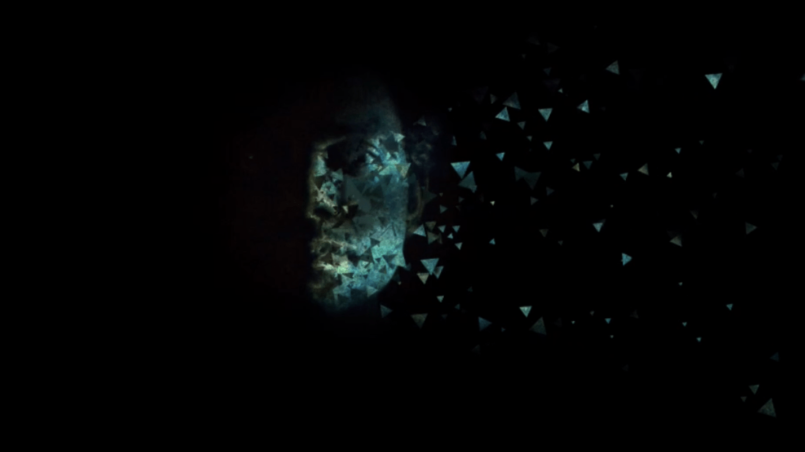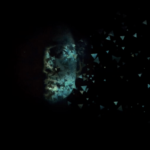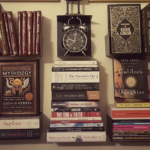It’s hard to bring up death, in any conversation, and to talk about it in a useful manner, without also invoking a feeling of dread, that most cultures have associated with it. Inspite of knowing that death is on the menu for everyone and is inevitable, most discussions about it are either indirect or impressively concealed behind euphemisms and wishful thinking. Most would rather not talk about it. But to think of one’s own finitude is one of the most real ways of understanding the beauty that existence has to offer. The fact that this life doesn’t last forever is precisely what makes it valuable.
Paradoxically, inspite of being so profound, the death talk is seen as little more than an inconvenient mood spoiler, that is best avoided. One of the reasons why people seem so incredibly out of touch with the prospect of their own death is because of this felt sense, that death seems to be the sort of stuff that only happens to ‘others’. It somehow always seems a lot more distant than it actually is. It seems more akin to what one might come across in the news for instance, rather than being something that one witnesses up close. In part, it’s perhaps also because death is seldom seen as an instrinsic fact of biology and much more as a catastrophic sign of something having gone terribly wrong.
A failure of intuitions aside, the daily routines that consume us, end up successfully taking us away from the truth, that our days here are numbered. There’s no way of knowing how much time we have, but each day spent, is undoudtedly one less day from however many we have left. We tend to live and go about things, as though we and everyone we love, is going to be here forever. As though the perfect diet, exercise and sleep regimen, along with the right pharmacological intervention, could secure an endless existence. But of course everything is changing in the meantime.
Death is the most unambiguous and unforgiving equaliser that graces every life. It’s the single most complete, hubris shattering reality check, that levels all delusions and denials alike. However much wealth and success that one might accrue, and however much fulfilling one’s relationships in life have been, the fact that one is bound to lose everything in the end, is understandbly a difficult one to come to terms with. After all when seen for what it truly is, a finite life can quickly begin to appear as an emergency, a long one at that, but an emergency nonetheless. No matter how skillfuly one executes the turns, the train of life, is by design, bound to go off the rails in the end. It’s no surprise that beliefs across the world have promised some sort of an afterlife or rebirth, a childlike fantasy, propped up to soften the blow and allow for some solace and comfort to trickle in, especially when one’s faced with the empty infinitude of death. But an honest assessment of the fundamental human condition however, leaves little room for fluffy make believe, and one way or another, in the end, we all have to come face to face with the prospect of our own demise or the loss of a loved one.
Because of an active societal aversion of this topic, there’s also often little nuance when it comes to the end of life discussions, with death often being clubbed together with dying. Of course for some of us, death would come as a one smack blow, with really not much dying left to do. But with the advances in modern medicine, the likelihood of having a prolonged ‘dying’ part is high. A flood lit room with beeping machines in a hospital setting, with intubation, catheters and hospital robes is what’s in store for most, towards the end. But from the point of view of the one who’s dying, ‘death’, per say is not the issue. Since death is synonymous with the cessation of experience, much like there’s no way to mourn one’s non existence before birth, there’s no way to suffer one’s non existence after death either. Prenatal non existence is precisely the same thing as post mortem non existence. Instead it’s the dying part, which is the real issue. It’s the downward spiral towards death and the associated suffering and indignities that it brings along, as the body begins to shutdown, that scares people, and rightfully so.
Drawn from the work of the Greek thinker Epicurus, the poem ‘De Rerum Natura’ (On the nature of things) by the Roman poet Lucretius comes to mind, where he nullified the fear of death among other things. Since death is synonymous with the cessation of experience, he reasoned, there’s nothing to experience after death. Epicurus had reasoned – “Death is nothing to us, when we exist, death is not, and when death exists, we are not.” From this arose the famous epitaph, that’s still seen written on many ancient Roman tomb stones – ‘Non fui, fui, non sum, non curo’ – ‘I was not, I was, I am not, I do not care’.
Now there are ways to subdue ‘pain’ and bring physical relief to the body, the very thing that’s doing the living and the dying. But phenomenologically speaking, ‘suffering’ is something else entirely. It’s a mental phenomenon, born of an anguished mind. One that’s unsettled with and perturbed by the things left undone. An uneasy mind that’s still yearning for things and clinging to what once was. Or one that’s unable to process and make peace with unfulfiled wishes, hopes and desires. And as much as I would’ve wanted my Nani (maternal grandmother) to not suffer this way, inspite of our best efforts at giving her comfort and love, ever since she had a major stroke on her 90th birthday, a perpetual sense of abandonment continued to loom heavy on her till the very end. Anyway the failings of familial ties aside, there’s much that I’ve learned from watching her go. A Swedish concept comes to mind. ‘Döstädning’ – which literally means ‘death cleaning’.
As a cultural prescription, as senility weighs heavy and one begins to feel their proximity to death, the Swedes talk of decluttering one’s house and getting rid of all the stuff that one no longer needs. The very act of sifting through old items, going down the memory lanes and donating them to those who would genuinely benefit from them, tends to bring people in close register with warmth, love and generosity, giving them a closure of sort. Needless to say, living this sort of minimalist life, in posession of only the things that one requires on a daily basis and ones that bring joy or seem truly worth passing down, can clear up one’s head space, bringing in a much needed sense of tidying up everything before signing off.
Death will always be in the background, if only one were to muster enough strength to honestly think about it. And it will come to the foreground eventually, likely sooner than anticipated. We can either turn our backs on this fact and deny it, like most do, or we can live more deeply in this moment because of it, with an understanding that ‘end’ is implicit in ‘existence’. That things go away by virtue of having come into existence in the first place. Life is but a brief time slot in the void. A short duration to wake up, mingle around before switching off.
Now a sudden death can understably evoke acute stages of bereavement. But the response to a death that was in the making for sometime and even a sudden one after the initial shock has eased, should be less about grieving, and more about celebrating a life that once was. To reminisce everything that the person was in a cheerful way, from their weird eccentricities to their unique persona and idiosyncrasies, from their godly achievements to their spectacular failings and everything in between. I am glad that my presence was undeniably a source of happiness for my Nani. And that I was able to be with her almost till the very end. We had a special connect, one that I could fully savour.
To everything that Nani was.
Non fui, fui, non sum, non curo






